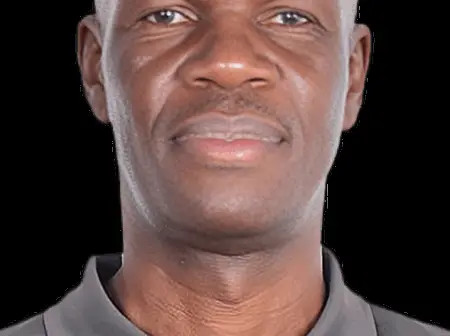When the conversation turns to education in Kenya, the spotlight often focuses on exam scores and academic performance. Yet, as industries from aviation to the maritime sector rapidly evolve, a growing chorus of voices is calling for a pivot towards practical skills and alternative learning pathways.

Peter Wangaki, a Community Advocate for Aviation Careers, is at the forefront of this shift, arguing that for Western Kenya’s youth to thrive, a strategic overhaul is needed. This transformation must include the Recognition of Prior Learning (RPL), stronger industry-academia links, and the pervasive integration of Aviation STEM into schools and technical colleges.
“Exposure and mentorship are just as crucial as formal instruction,” asserts Wangaki. Though he was unable to appear on the recent ‘Alternative Learning’ theme on West TV’s The Morning Scoop, his prepared responses to the show’s questionnaire offer vital insights into how a holistic approach can unlock massive, specialized opportunities for the region’s young population.
For aspiring aviation and technical professionals, Wangaki stresses that attitude and commitment are the ultimate differentiators. The most important skill a student can possess? Critical thinking—the ability to analyze, solve problems, and adapt.
However, in aviation, the standards are far higher. “In aviation, discipline is absolute,” Wangaki states, emphasizing strict adherence to safety procedures and global standards. This non-negotiable requirement extends even to modern Unmanned Aerial Vehicles (UAVs), or drones, which in Kenya require certification from the Kenya Civil Aviation Authority (KCAA).
While pilot training grabs headlines, Wangaki notes that the most in-demand roles for regional hubs like Kisumu and Eldoret include:
To build a robust talent pipeline, he proposes that the East African School of Aviation (EASA) must devolve its footprint. This means extending its reach to regional airports and establishing strategic partnerships with regional universities like Masinde Muliro University of Science and Technology (MMUST) and Kibabii University (KIBU). This move, he argues, is essential to make aviation careers accessible to young people outside the Nairobi area.
Despite the efforts of institutions like EASA, Kisumu National Polytechnic, and private providers, Wangaki cautions that the collective capacity still falls short of the rapidly growing national, regional, and global demand for skilled aviation professionals.
The focus on practical skills isn’t limited to the skies. Wangaki sees immense, untapped potential in Western Kenya’s geography:
Recognition of Prior Learning (RPL) is championed as a way to validate informal skills, giving “dignity and recognition” to those without formal education and fast-tracking them into the workforce to help reduce youth unemployment.
However, Wangaki draws a firm line when it comes to the highly regulated world of aviation. “There is no such thing as jua kali in aviation—it is literally a matter of life and death,” he asserts. While RPL may recognize prior exposure, full certification requires rigorous assessment, structured training, and strict compliance with the global safety and licensing requirements set by the International Civil Aviation Organization (ICAO), of which KCAA is a member.
If he could change one thing in the education system, Wangaki would accelerate the integration of Aviation STEM. He proposes the establishment of Aviation Model Schools in every county, from primary through high school, and the mandatory integration of Aviation STEM into all Technical and Vocational Education and Training (TVET) institutions.
Crucially, this must include a dedicated focus on empowering girls. With women making up less than 6% of the global aviation workforce, creating robust STEM pathways and visible female role models is essential to tackle the severe underrepresentation in Kenya and Africa.
Wangaki also pushes for a strategic national investment in EASA, urging the government to allow it to offer full flight training programs—from Private Pilot Licence (PPL) to Airline Transport Pilot Licence (ATPL). This move, he contends, would position Kenya as a regional center of excellence for pilot training and secure its place in the global aviation workforce.
“The greatest lesson I’ve learned is that exposure and mentorship matter as much as classroom instruction,” Wangaki concludes. Alternative learning, he says, is not about rejecting formal education, but complementing it to ensure Western Kenya’s youth are prepared for competitive, high-stakes careers both locally and globally.

Leave a Reply